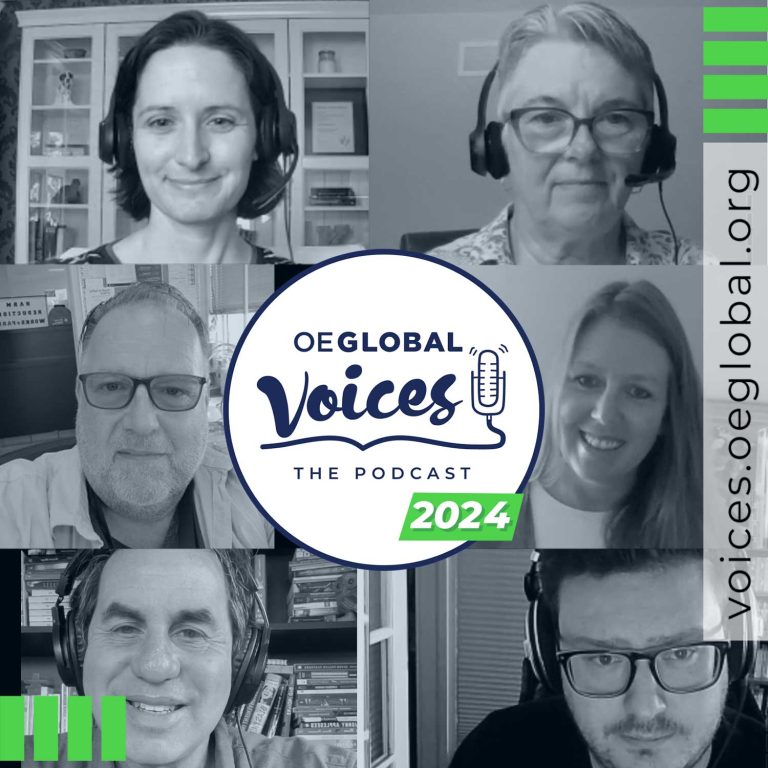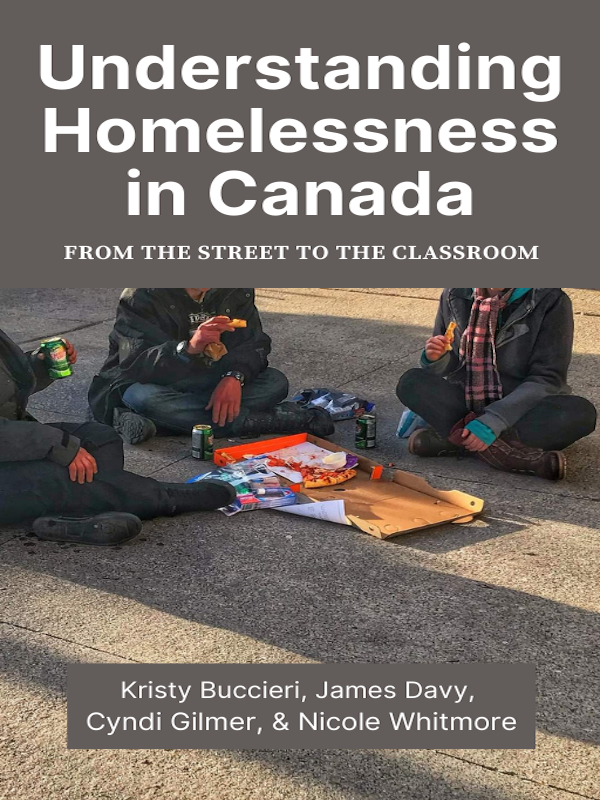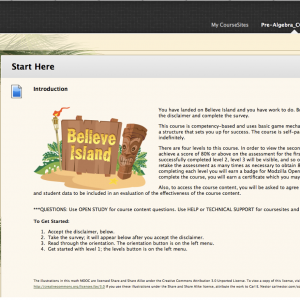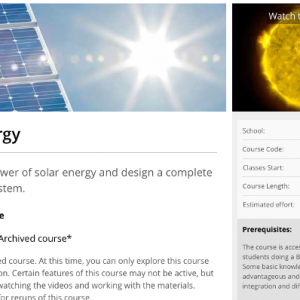Homelessness as a contemporary issue is deceptively complex. Despite its high prevalence, it is not a topic many people have studied formally. As a result, much of what the general public knows, or believes they know, about homelessness comes from public representations shown in the media and encounters with people sleeping outside in urban spaces. These one-dimensional portrayals fail to capture the range and depth of homelessness as something people experience, but also as a social and structural issue that results from decisions we make as a society.
To specifically challenge these perceptions, and encourage learners to think more deeply, a team at Trent University and the Canadian Observatory on Homelessness developed the online higher education resource “Understanding Homelessness in Canada: From the Street to the Classroom.”
Published in February 2022, this multi-functional resource published in Pressbooks has been used as an online course, open-access textbook, video and podcast series, and professional development resource. Key to the success of this initiative is the combining of expert knowledge through recorded interviews with leading researchers, co-authorship of people with lived homelessness experience, and exceptional online learning design and implementation, with multi-media accessibility at its heart.
It is critical in the creation and development of such resource to include authors with lived experiences of homelessness. Two of the e-book’s four co-authors have lived experience of homelessness and now work in community addictions outreach roles. Their experiences and perspectives helped shape the resource throughout, and supported the research in the real-world scenarios provided. The e-book addresses homelessness across Canada, with perspectives from 26 highly regarded homelessness researchers from coast to coast. The companion podcast and YouTube channel were created to allow learners to revisit e-book material in accessible formats which support their learning.
Listen to “Introduction 1.2 – How do we know what we know about homelessness?” on Spreaker.“Understanding Homelessness in Canada” engages learners in critical discussions about real world social issues alongside leading researchers in the field and people with lived experience. Its design is both thoughtful and intentional– the multi-modal and accessible style is an example of best practices in online education. Trent Online e-learning experts Stephanie Ferguson, Josh Andrews, and James Bailey alongside Dr. Kristy Buccieri and Dr. Cyndi Gilmer, Associate Professors in the fields of Sociology/Criminology and Nursing, shepherded this project to completion.
The partnership with the Canadian Observatory on Homelessness (COH) and the use of material from the Homeless Hub is an example of how open education resources can extend beyond educational institutions to community, government, not-for-profit and social justice spheres and become catalysts for social change. This partnership has also enabled the sustainability of the open education resource long-term.
This project has impacted my conception of what is possible and what can be achieved both within online education at the post-secondary level as well as the impact that open education can have as a catalyst for changing social views, raising the national consciousness, and pushing the needle toward social justice accross a wide range of fields.
Award Nominator
This work shines a spotlight on a population of individuals that is regularly marginalized at best and forgotten at worst but no less worthy of attention than any other humans. Beyond the content, the format is a model for multimodality, engagement, interactivity, and accessibility. And the high number of collaborators who came together to contribute to the work clearly has contributed to its excellence.
Award Reviewer
Explore more about this awardee…
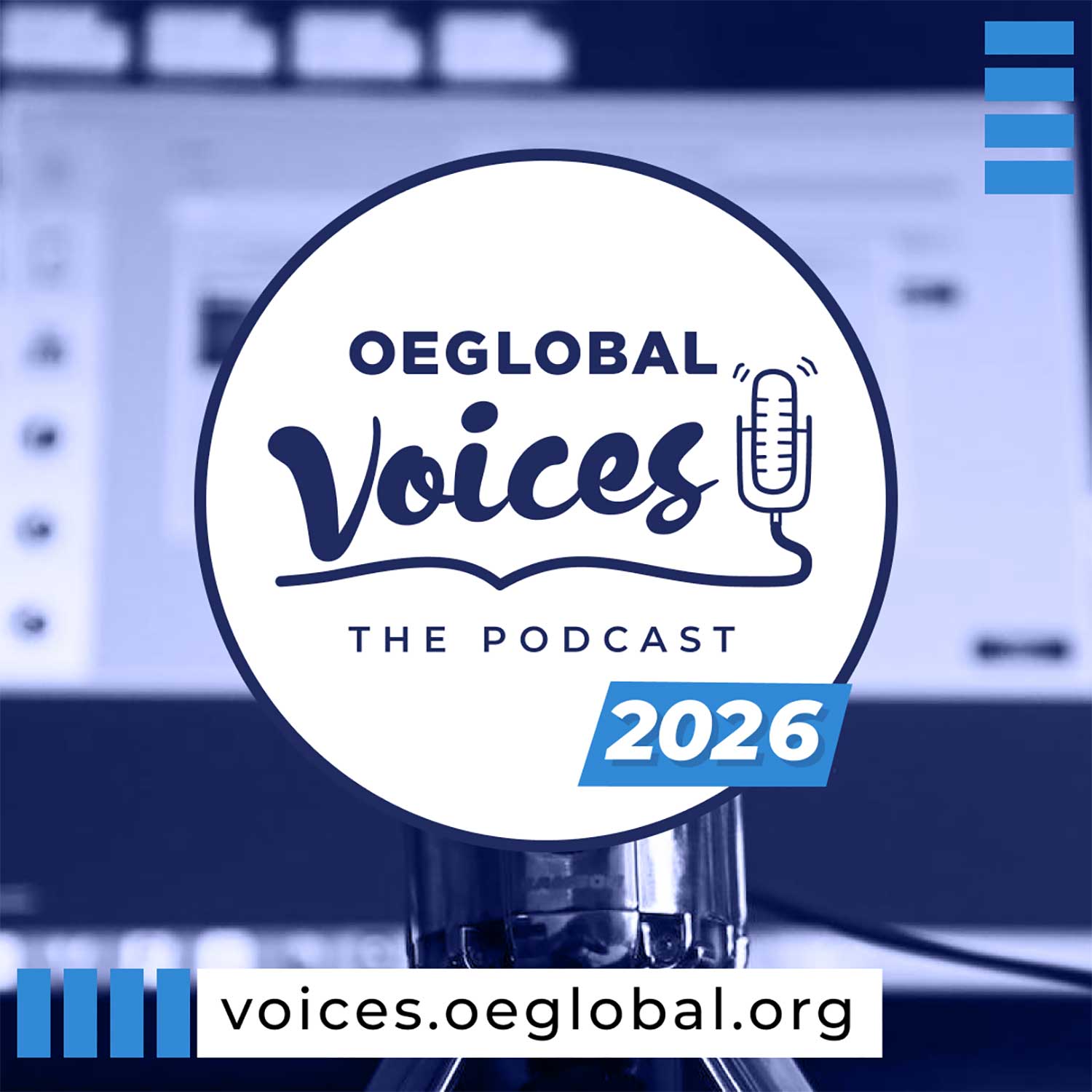
Podcasts from Open Education Global
In another of our series of podcasts featuring the award winners of the 2023 Open Education Awards for Excellence we are pleased to share a conversation with some of the team who created the OER Understanding Homelessness in Canada: From the Street to the Classroom. A collaboration between Trent University and the Canadian Observatory on Homelessness, was designed to help students and the public understand this critical issue more deeply than portrayals in media or what is seen in glances of those affected on the streets all to provide insight into the structural and societal underpinnings, the findings of current research, and empathy through lived experiences of homelessness.
You will understand from this resource and what you hear from five of the co-creators why this work was recognized with an award for Significant Impact OER.
Thanks to our guests for taking time to discuss the concept, application, and the story behind the Understanding Homelessness in Canada OER.
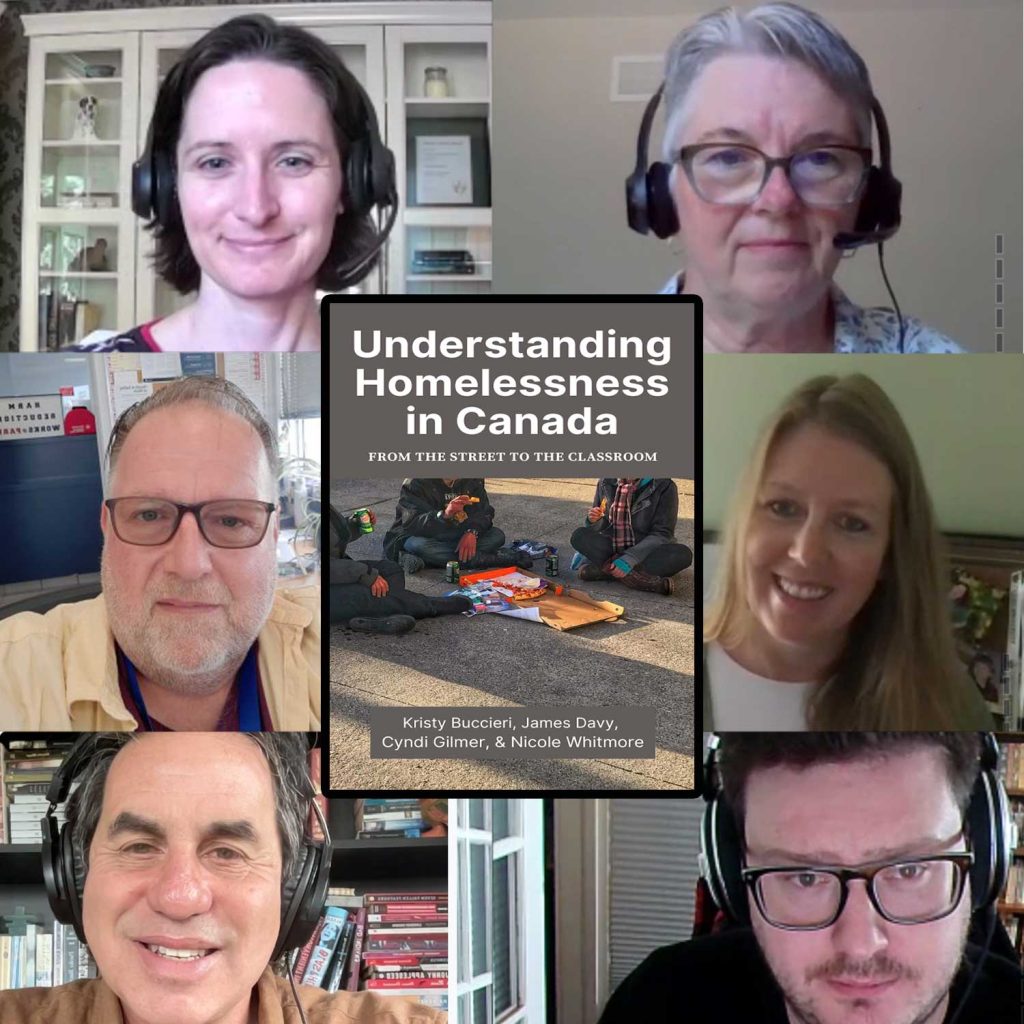
In This Episode
FYI: For the sake of experimentation, this set of show notes alone was generated by AI Actions in the Descript editor we use to produce OEG Voices.
Episode 70: OE Award for Homelessness in Canada
In this episode of OE Global Voices, we explore the impactful project ‘Understanding Homelessness in Canada from the Street to Classroom,’ which won the Significant Impact OER award. Host Alan Levine is joined by experts and collaborators, including Kristy Buccieri, Stephanie Ferguson, James Davy, Cyndi Gilmer, and James Bailey, to discuss the project’s inception, the current state of homelessness in Ontario, and strategies for creating engaging educational content for important and current social issues.
- Opening Music and Highlight Quotes
- Welcome to OE Global Voices
- Introducing the Guests
- The Origin of the Project
- Canadian Observatory on Homelessness
- Current State of Homelessness in Ontario
- Creating Realistic Scenarios and Artwork
- Audience and Accessibility
- Feedback and Global Reach
- Podcast and Multimedia Approach
- Design and Structure of the Book
- Encouragement for Future Projects
- Personal Reflections and Hobbies
- Conclusion and Final Thoughts
at Descript.com
Additional Links and Quotes for Episode 70
I think it touches every community. Certainly it’s not just an urban challenge. You often see the picture of homelessness with a person lying on a grate in the winter trying to stay warm. I live in a more rural community and every community is touched by what some of the literature calls “hidden homelessness” especially at this time of year, you start to see folks who are camping on the beach and who just can’t find affordable housing and the income even from government is just not cutting it. It’s, it’s not cutting it for housing, let alone when you’re deciding whether you or your children are going to eat, this week as well. So it’s, it’s pretty, pretty rampant across Ontario.
Cyndi Gilmer
Being homeless isn’t safe, And I’m not that far out of of my lived experience in homelessness. It’s within the last ten years. And, you don’t rest, you don’t sleep. you’re constantly on alert. It’s dangerous situations.
James Davy
I would add to that as well, when we teach this course, one of the things that students comment on the most is the impact of the lived experience stories and the inclusion of those particular case studies , that’s really what they take away as being, the key learning for them.
Kristy Buccieri
As far as like wishing we had done more, Kristy touched on this– like snowball effect, but I would describe it more of like an avalanche, a beautiful avalanche. You know, even the number of researchers climbed, Everyone just said, yes, we want to be part of this.
Stephanie Ferguson
- 2023 OE Award for Excellence in Significant Impact OER (OE Global)
- Understanding Homelessness in Canada: From the Street to the Classroom
- Podcast (Spreaker)
- YouTube channel
- Canadian Observatory on Homelessness (COH)
- Homeless Hub
- Hidden Homelessness (Homeless Hub)
- March 2022 Dinner Conversation with co-author Nicole Whitmore (Greenwood Coalition)
As we were moving through this project, we had an idea. we said, “Hey, why don’t we make this, accessible for auditory learners?” Why don’t we have that availability as part of the project? So, I of course agreed, to this idea and, we came up with a little bit of scripting, began to shape, we had Cindy, actually do a intro and a outro narration.
We had her introduce, each interviewer, and then from there we were able to kind of craft and use the audio from each video into the podcast episodes.
The podcast themselves are more or less a reflection of the videos, just in a much longer format.
James Bailey
I’m on a board of directors for a hospital and they were wanting to learn something about homelessness. So we shared the link to the book. Many of the directors who are living in a community where they see homelessness, only hear the community voice of what the community thinks homelessness is. It was a nice reference and an ability to become a little bit more knowledgeable about what the research says about homelessness, what these experts say about homelessness, including our lived experience experts say about homelessness.
Cyndi Gilmer
I always say without the team, it would be a 700 page Word document on my computer,. And I guarantee you 31,000 people would not have read a 700 page Word document. So the team is really what makes it come to life. It’s really where the ideas come in. If we had looked back and said, the amount of work that would go into it, do we want to take this on?
It probably would have been terrifying. But because we moved forward through it, everything just led to the next step. It was a lot of work for sure, but it all was logical, and it all came together.
So, walk the path, walk it with other people, and definitely take advantage of your team strength.
Kristy Buccieri
We hope you have enjoyed listening to the voices of just a few people who were apart of the truly significantly impactful OER, Homelessness in Canada: From the Streets to the Classroom. If you have created or know of another OER of significant impact, or any other open educator, resource, or practice worth recognizing, there is still time to nominate them for a 2024 OE Award for Excellence. Nominate now at https://awards.oeglobal.org/.
Our open licensed music for this episode is a track called Welcome Home by Cambo that is licensed under a Creative Commons Attribution-ShareAlike License.Like most of our podcast music, it was found at the Free Music Archive (see our full FMA playlist).
This was another episode we are recording on the web in Squadcast. This is part of the Descript platform for AI enabled transcribing and editing audio in text– this has greatly enhanced our ability to produce our shows. We have been exploring some of the other AI features in Descript, but our posts remain human authored unless indicated otherwise.
